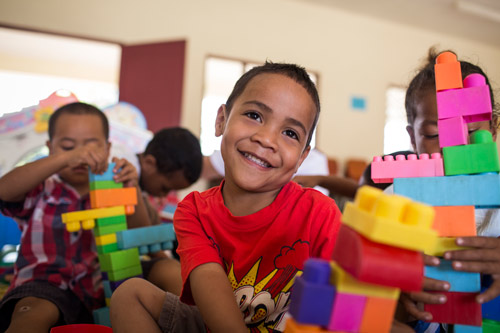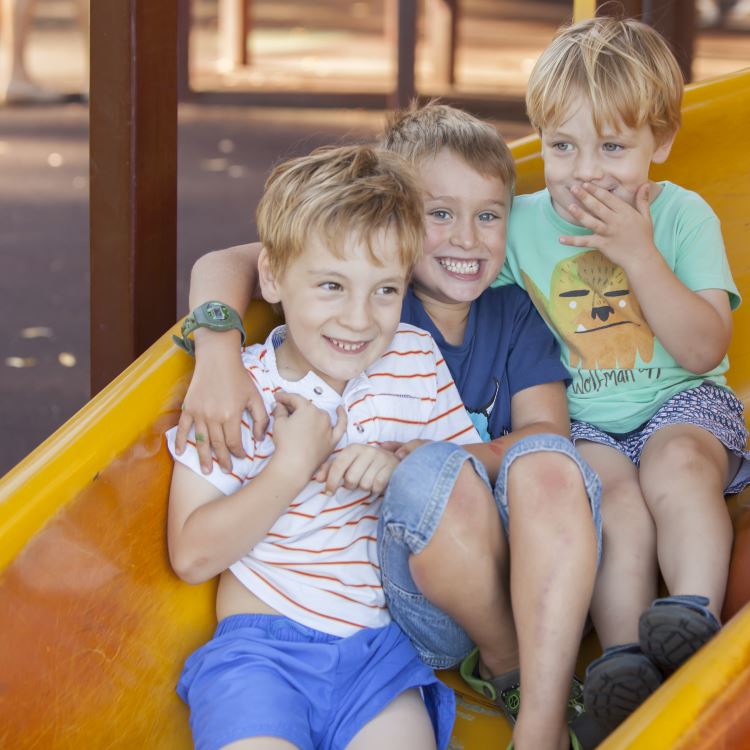Search
Research
Interventions to Improve Child Physical Activity in the Early Childhood Education and Care Setting: An Umbrella ReviewEarly childhood education and care (ECEC) services are a key setting to support improvements in the physical activity of young children. This umbrella review gathered and synthesised systematic review evidence of the effectiveness of interventions in the ECEC setting on the physical activity levels of children aged 0–6.
Research
Association between preschooler movement behaviours, family dog ownership, dog play and dog walking: Findings from the PLAYCE studyPhysical inactivity in childhood is a major public health issue. Dog ownership has been widely reported to lead to greater physical activity in adults and school-aged children. We examined if dog ownership and dog-facilitated physical activity were associated with higher physical activity in preschoolers. Secondary analysis of the 'Play Spaces & Environments for Children's Physical Activity' (PLAYCE, 2015-2018) study involving 1366, 2-5-year-olds from 122 long day-care centres in Perth, Australia was conducted.
Research
Playgroup participation and social support outcomes for mothers of young children: A longitudinal cohort study.This study aimed to examine friendship networks and social support outcomes for mothers according to patterns of playgroup participation.
Research
The association between playgroup participation, learning competence and social-emotional wellbeing for children aged four-five years in AustraliaThis study provides evidence that continued participation in playgroups is associated with better outcomes for children from disadvantaged families.
Research
Randomised Controlled Trial of a Therapeutic Playgroup for Children with Developmental DelaysA single-blind randomised control trial investigated the effectiveness of the Learn, Engage and Play (LEaP) playgroup. Seventy-one children with developmental delay were randomly allocated to an 8-week LEaP playgroup or control group and followed up at 12 and 28 weeks.
Research
The Power of Playgroups: Key components of supported and therapeutic playgroups from the perspective of parentsPlaygroups are community-based programs for children and families aiming to improve child outcomes, enhance family and community networks and increase parenting capacity. Despite the prevalence of playgroups in Australian communities there is a lack of research clearly articulating the key components of playgroups, specifically from the perspective of parents attending these groups.
Research
Interpregnancy intervals and child development at age 5: A population data linkage studyTo investigate the associations between interpregnancy intervals (IPIs) and developmental vulnerability in children's first year of full-time school (age 5). A retrospective cohort study using logistic regression. ORs were estimated for associations with IPIs with adjustment for child, parent and community sociodemographic variables.
Research
Tasmania’s child and family centres: a place-based early childhood services model for families and children from pregnancy to age fiveTasmania’s child and family centres users made more use of early childhood services than did non-users

News & Events
Playgroup program transforms early learning in TongaIn Australia, community playgroups are seen as the ‘soft touch’. But a research project in Tonga is finding the benefits can last a lifetime.

News & Events
Kids who attend playgroup do better at schoolNew research by The Kids Research Institute Australia has found children who attend playgroups achieve better early primary school outcomes.
